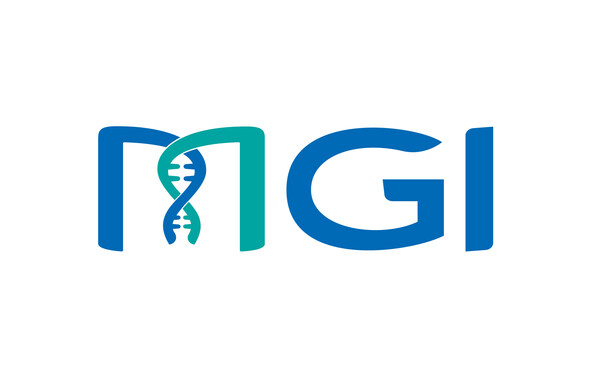 |
LIMA, Peru, Aug. 1, 2024 /PRNewswire/ -- In Peru, alpaca fiber has become a flagship product driving the fashion industry. Highly valued for its exceptional softness, quality, strength, and authenticity, this raw material is coveted in the world's most exclusive stores. According to national reports, nearly USD 200 million worth of products made from alpaca fiber, including fabrics, garments, and other derivatives, are exported each year to the United States, Europe, and Asia[1].
In their effort to advance the Peruvian textile industry, MGI Tech Co., Ltd. ("MGI"), a company committed to building core tools and technologies that drive innovation in life science, along with Universidad Agraria de La Molina (UNALM) and Inca Tops, are spearheading genetic research on 1,500 alpacas from Puno. This initiative focuses on DNA analysis to identify molecular markers within their genomes, that optimize fiber quality, enhance fineness, and maintain natural colors.
Carlos Carpio, MGI's Commercial Director for Latin America, states that the implementation of genomics contributes to the development and growth of the alpaca industry, enabling scientists not only to identify and analyze genes and their characteristics but also to conduct more efficient processes for optimization.
"Latin America has become a strategic region for advancing next-generation genetic sequencing research, particularly in agriculture. In the case of alpacas, genomics facilitates the enhancement of key physical traits and disease resistance, ensuring the long-term health of the animals and the consistent quality of their fiber. This benefits breeders by improving the profitability and sustainability of alpaca production, while also promoting more efficient and environmentally friendly agricultural practices."
Carpio also underscores that the technology MGI is employing for genetic sequencing accelerates research in industrial crops like alpaca fiber. In this project, sequencing is performed on MGI's high-throughput sequencer DNBSEQ-T7RS. Libraries are prepared on the MGISP-960 using library prep reagents, and data analysis for variant calling is conducted on MGI's Megabolt.
"We are proud to contribute to the sequencing of alpaca fiber genes. By providing high-quality data through cutting-edge, highly efficient, and cost-effective technologies, we can harness the potential of agri-genomics to enhance industry competitiveness in developing countries," the executive notes.
Dr. Gustavo Gutiérrez, a faculty member and researcher at the Department of Zootechnics at Universidad Nacional Agraria La Molina (UNALM), who oversees the DNA extraction from these animals, highlights the global significance of alpaca fiber.
"Peru boasts over 85% of the world's alpacas, totaling 5 million, establishing us as the primary producer of this sought-after fiber. While facing competition from other textiles in the market, technological advancements aim to enhance alpaca quality, boosting demand, industry value, and supporting highland farming communities," says the UNALM researcher.
Dr. Gutiérrez adds that this project not only enhances alpaca genetics for breeding and production but also contributes to the advancement of scientific knowledge. "This research will benefit breeders, professionals, and institutions involved in the study of these camelids."
The research commenced in June 2024 and will continue until March 2025 in the districts of Melgar and Ñuñoa, located in the province of Melgar, Puno, at altitudes below 4,000 meters above sea level. Inca Tops oversees alpaca sample collection at its Pacomarca Scientific Station, renowned as the most advanced worldwide in this field.
"At Inca Tops, we are dedicated to the revalorization of alpacas and the preservation of their fiber, essential for crafting exclusive articles. Our garment production hinges on ancestral innovation deployed at our Scientific Station, built upon six millennia of cultural legacy to procure the world's finest fiber. Moreover, we prioritize sustainability in our operations, ensuring that communities supplying our raw materials benefit economically from extraction activities, thereby improving their quality of life," concludes Alan Cruz, Genetic Development Manager of Pacomarca.
Additional facts:
About MGI
MGI Tech Co., Ltd. (or its subsidiaries, together referred to MGI) is committed to building core tools and technologies that drive innovation in life science. Our focus lies in research & development, manufacturing, and sales of instruments, reagents, and related products in the field of life science and biotechnology. We provide real-time, multi-omics, and full spectrum of digital equipment and systems for precision medicine, agriculture, healthcare and various other industries.
Founded in 2016, MGI has grown into a leader in life science, serving customers across six continents and have established research, manufacturing, training, and after-sales service facilities globally. MGI stands out as one of the few companies capable of independently developing and mass-producing clinical-grade gene sequencers with varying throughput capacities, ranging from Gb to Tb levels. With unparalleled expertise, cutting-edge products, and a commitment to global impact, MGI continues to shape the trajectory of life sciences into the future. To learn more, please visit https://en.mgi-tech.com/, LinkedIn, X, and YouTube.
[1] MIDAGRI: Reporte de Alpaca. (2022). Gobierno del Perú. Retrieved July 2024, from https://recursos.exportemos.pe//ALPACA2022_rev1%20(1).pdf [2] International Year of Camelids. (2024). Food and Agriculture Organization of the United Nations (FAO). Retrieved July 2024, from https://www.fao.org/camelids-2024/es |